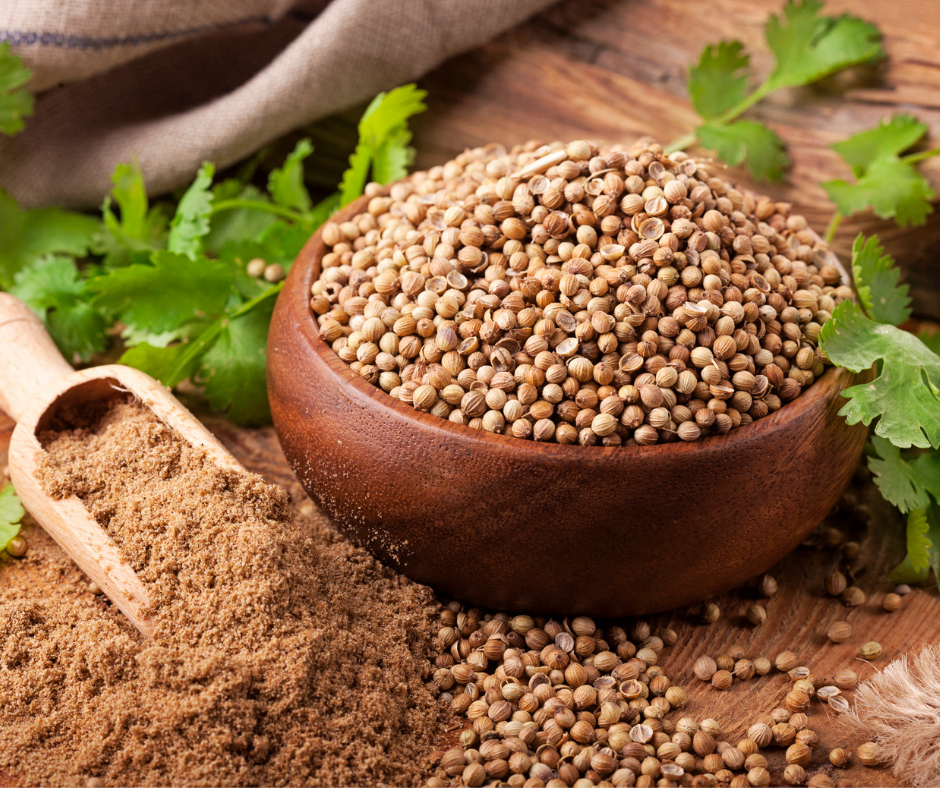Health Benefits of Coriander
Coriander is one of the best spices or herbs that is used in most of indian culinary dishes in seed, powder, or fresh form.
According to Ayurveda, the rasa or taste of coriander is astringent. After digestion it creates a sweet taste. It can balance all three dosha -vata,pitta and kapha.
Coriander is a rich source of Vitamins B, C, & K, phosphorus, calcium, magnesium, iron and contains phytonutrients, and flavonoids. As a culinary spice it assists with digestion.
It relieves intestinal gas, prevents nausea, and stimulates appetite. Coriander is a mild diuretic and may relieve the excess of fluid in the body. Add fresh cilantro or coriander as a seasoning after cooking or prepare a green chutney to eat with meals.
Coriander may help in cleansing the liver. As a beneficial source of dietary fiber,it has insoluble fibre which may facilitate normal bowel movements. This potent herb may protect against urinary tract infections, since it is a urinary alkaliner.
Recent researche found that oil extracted from coriander seeds can kill bacteria such as E. coli, which are related to food-borne diseases and causes bacterial infections.
Natural compounds in fresh coriander leaves can also remove toxic heavy metals from the body without any side effects.It may help in lowering the blood sugar levels by stimulating the secretion of insulin and help in the functioning of the heart by lowering bad cholesterol (LDL) and raising good cholesterol (HDL).
Coriander also works on the heart chakra.To know the efficacy of coriander and how it can help you please take professional advice as this ARTICLE is for information only.PRECAUTION;If you have bronchial asthma or chronic bronchitis or any upper respiratory problem then dried coriander, may aggravate the condition if used excessively.
Please consult a health care practitioner for advice on how to best incorporate ayurvedic herbs and spices into your life.

